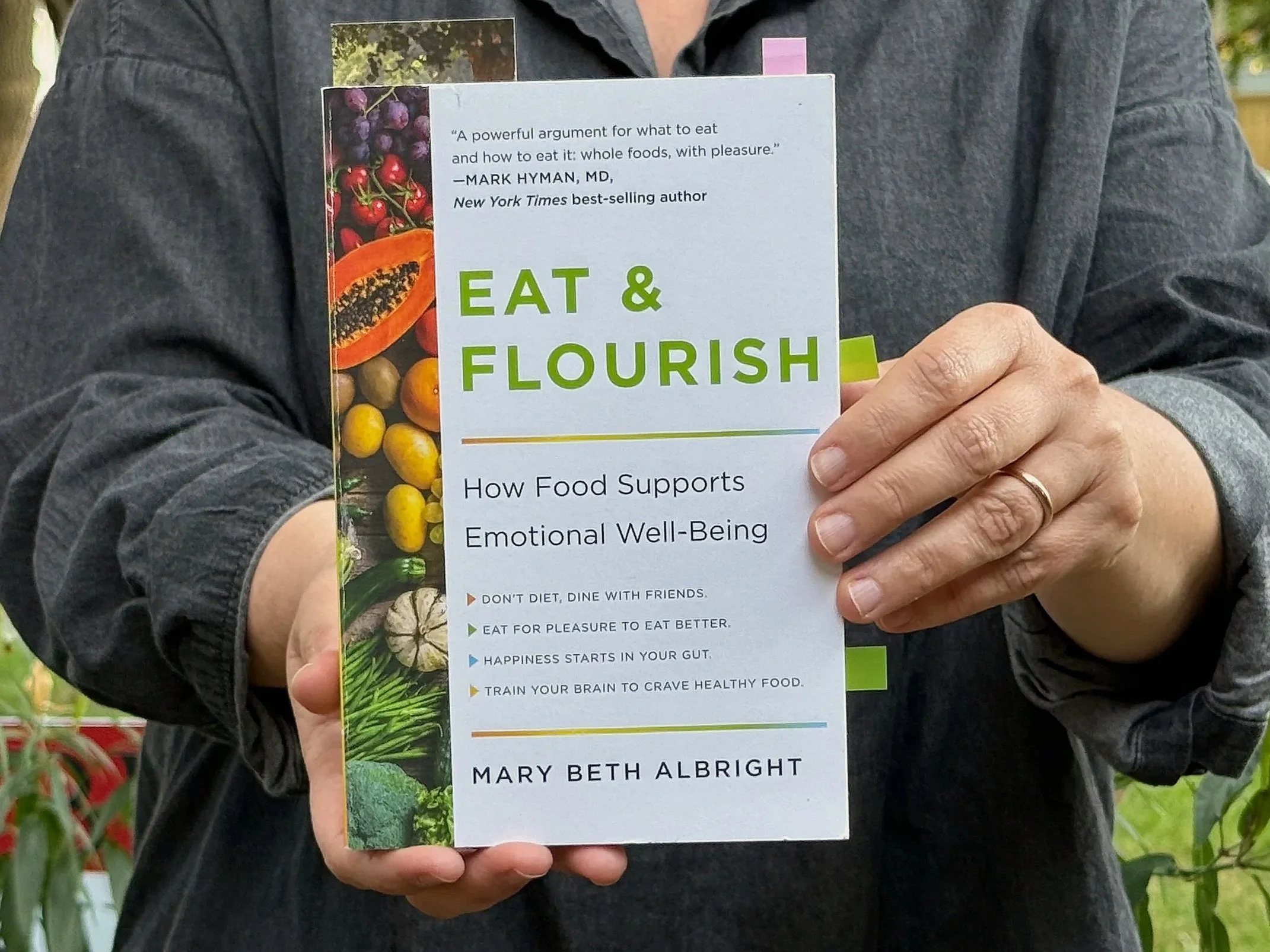Book Review: “Eat & Flourish: How Food Supports Emotional Well-Being”
I rate this book 10/10. It’s perfect for therapists, clients working on emotional eating patterns, anyone curious about the food-mood connection, and science lovers who want practical applications.
As someone who has wrestled with emotional eating most of my life, I was skeptical of yet another book promising to solve our food-mood mysteries. But Albright delivers something refreshingly different: rather than peddling the same tired morality tales about "good" and "bad" foods that have kept us trapped in cycles of shame for generations, she dives deep into the emerging field of nutritional psychiatry to show us how eating actually works in our brains and bodies. For more details, read on.
Photo by J. Shaw
What if I told you that the answer to some of our emotional struggles might be sitting in our refrigerator? Mary Beth Albright's Eat and Flourish: How Food Supports Emotional Well-Being makes a compelling case that our mental and emotional health is intimately connected to what we put on our plates, and she has the research to prove it.
If You Like Science, You Will Like This Book
The book's real strength lies in Albright's gift for making complex research digestible. She doesn't just tell you to eat more omega-3s; she explains exactly how those fatty acids cross the blood-brain barrier and influence neurotransmitter production. When she describes her own experience drinking wine and kale juice inside an fMRI machine, you can't help but be charmed by her commitment to understanding the science firsthand.
Her PING framework (Pleasure, Inflammation, Nutrition, Gut-microbiome) provides a memorable way to think about food choices. The gut-brain connection chapter alone is worth the price of the book, especially for anyone who's ever noticed how stress seems to live in their stomach or bowels.
Beyond Emotional Eating Shame
Perhaps most importantly for those of us in the therapy space, Albright reframes "emotional eating" without the usual shame spiral. She explores how what people eat contributes to how they feel—and the key role that pleasure takes in that connection. She doesn’t frame emotional eating as a failure of willpower or moral values. This is about biology, connection, and treating our bodies with the scientific curiosity they deserve.
The book includes a practical 30-day plan, but it's not the restrictive kind that sets you up for failure. Instead, her four-week plan includes very doable things like eating fermented foods, legumes, and lots of produce, as well as "eating with another person at least once per day," because social connection is as important to our wellbeing as the nutrients themselves.
Worth Your Time? Yes.
Eat and Flourish strikes a satisfying balance between being scientifically rigorous and genuinely enjoyable to read. If you're tired of food books that either oversimplify or overwhelm, this one finds the sweet spot. It's particularly valuable for anyone working in mental health or struggling with their own relationship with food and mood.
The research is current, the tone is warm, and the approach is refreshingly free of food moralization. Plus, Albright includes recipes that actually sound appealing—a nice bonus for putting theory into practice.
You can grab this book from my Bookshop.org shop if you'd like. Full transparency: I do earn a small commission, but honestly, whatever I make just goes toward buying more books!
